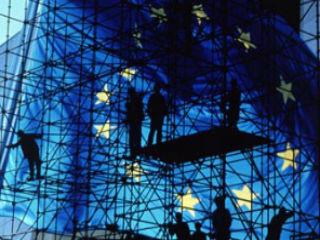The debate for a two-or a multi- speed Europe is becoming an increasingly hot topic in the EU

The debate on a two or multiple speed Europe should be one based on common sense and simple key messages, in order not to get distorted or misunderstood: scare games are to be expected, one way or the other (either the ”EU will get stuck” or ”EU will lose its cohesion and key functioning principles”).
by
Radu Magdin*
Rightfully so, because in times of crisis all options are explored, in order for a Club to survive and prosper. In this context, due to an analysis on various national interests, stronger political positioning in between "EU's core" States and its other members is expected in the months to come, with a clearer East-West rift. The West is mindful to keep the core, the East to keep solidarity and avoid any divisions in Europe.
Two-/mult-speed Europe has a series of pros and cons (from efficiency to symbolism) that define opposite visions of the EU: if fully assumed as a principle, Europe will never be the same. Therefore, any debate should be transparent and have the right timing and arguments, in order to avoid adverse consequences for the European project. An idea meant to help with EU decision-making in an enlarged Europe risks otherwise becoming a Pandora's box in a complicated time for Europe's social, economic and political fabric.
The European Union is still confronted with multiple crises, the most obvious being the management of the refugee flux towards Europe. Europe needs a proper, transparent, debate about its future, including the ways of functioning best in an enlarged club. While no immediate enlargement is in sight, the Club should prepare its institutions for increasingly competing visions on the EU and its future, under populist pressure or simply under the political attraction of Brussels-bashing. A critical issue remains the timing of the debate, in order for it not to further complicate an already complicated European environment, before key elections in Germany and France, in 2017. The debate on a two or multiple speed Europe should be one based on common sense and simple key messages, in order not to get distorted or misunderstood: scare games are to be expected, one way or the other (either the "EU will get stuck" or "EU will lose its cohesion and key functioning principles").
Stakeholders in Visegrad+ countries, from the latest waves of accession, as well as any other "outside-the-EUcore" countries, with the notable exception of the UK (who negotiated its fresh new "special status"), should beware a version of "Two or Multiple Speed" Europe which may be contrary to their development goals and interests, whether one deals with a debate on cohesion and solidarity principles (and the EU money involved), or simply with the risk of remaining at the periphery of Europe, in a lax circle of growth, with small chances of ever catching up with EU colleagues. In terms of national interests, for Visegrad+ countries, a debate on de facto changing the basics of Europe should be delayed as much as possible. In time, if a two or multiple speed Europe cannot be eventually avoided, it should be both commonsensical and function to all member's advantage.
*Radu Magdin is Vicepresident for Strategikon, a Romanian English-speaking strategy think tank, and the co-author of a report on Two Speed Europe




 By: N. Peter Kramer
By: N. Peter Kramer

